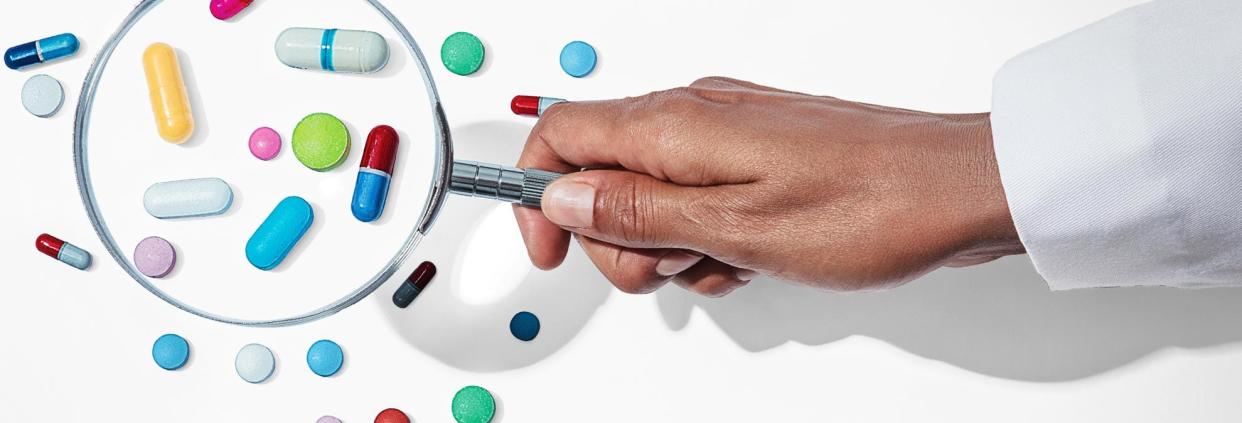Give Your Drugs a Checkup: Reviewing Your Medication List Can Prevent Errors

Consumer Reports has no financial relationship with advertisers on this site.
Drug-safety experts recommend throwing all your pill bottles into a bag at least once a year and taking them to your doctor or pharmacist for a thorough drug checkup. That "brown-bag review" of prescription and over-the-counter drugs as well as vitamins and supplements provides a chance to check for duplicate meds, excessive doses, and dangerous interactions, and for you to ask questions.
For insight on how easy it is to talk with pharmacists about your drugs and to see how well they caught potentially dangerous interactions, we sent 10 secret shoppers to 45 pharmacies across the U.S. and had them ask about a list of drugs they were “taking.”
They included three prescription drugs (the blood-pressure medication hydrochlorothiazide, the blood thinner Coumadin, and the sleeping pill Ambien) and two OTC drugs (baby aspirin and Aleve PM, a combination pain pill and sleep aid).
Make sure you talk with the pharmacist. In half their visits, shoppers first met a clerk or pharmacy technician at the counter, not a pharmacist.
Schedule an appointment. The pharmacists did a pretty good job of spot-checking problems when our shoppers just showed up at the counter. But experts say that for a full brown-bag review, you’re better off reserving time with your pharmacist or doctor.
Ask about insurance. None of our shoppers had to pay for their walk-in visits, and CVS and Target told us they also do free comprehensive reviews. Other pharmacies, and your doctor, may charge for full reviews, but most often it’s only your regular insurance co-pay. Medicare allows free yearly reviews with a doctor, and for many Medicare Part D patients taking multiple meds, a pharmacist, too.
Be thorough. Cover the basics for each medication or supplement, such as what it’s for, how long you should take it, what it costs, and any side effects and potential interactions. Also ask about nondrug options that might be safer, and whether you can switch to a lower dose.
National Check Your Meds Day
Consumer Reports, working with the Department of Health and Human Services, has proclaimed Oct. 21, 2017, “National Check Your Meds Day.” A number of pharmacies—Albertsons, Costco, CVS, Sam’s Club, Target, Walmart, and many independents—have agreed to support the effort. Some may even have extra staff on hand to help you review your meds. Ask your local pharmacy whether it is participating.
Good to know: Asking whether there are meds you can stop taking could result in at least one less prescription, according to CR’s recent nationally representative survey.
Editor’s Note: This special report and supporting materials were made possible by a grant from the state Attorney General Consumer and Prescriber Education Grant Program, which is funded by a multistate settlement of consumer fraud claims regarding the marketing of the prescription drug Neurontin (gabapentin).
This article also appeared in the September 2017 issue of Consumer Reports magazine.
More from Consumer Reports:
Top pick tires for 2016
Best used cars for $25,000 and less
7 best mattresses for couples
Consumer Reports is an independent, nonprofit organization that works side by side with consumers to create a fairer, safer, and healthier world. CR does not endorse products or services, and does not accept advertising. Copyright © 2017, Consumer Reports, Inc.

